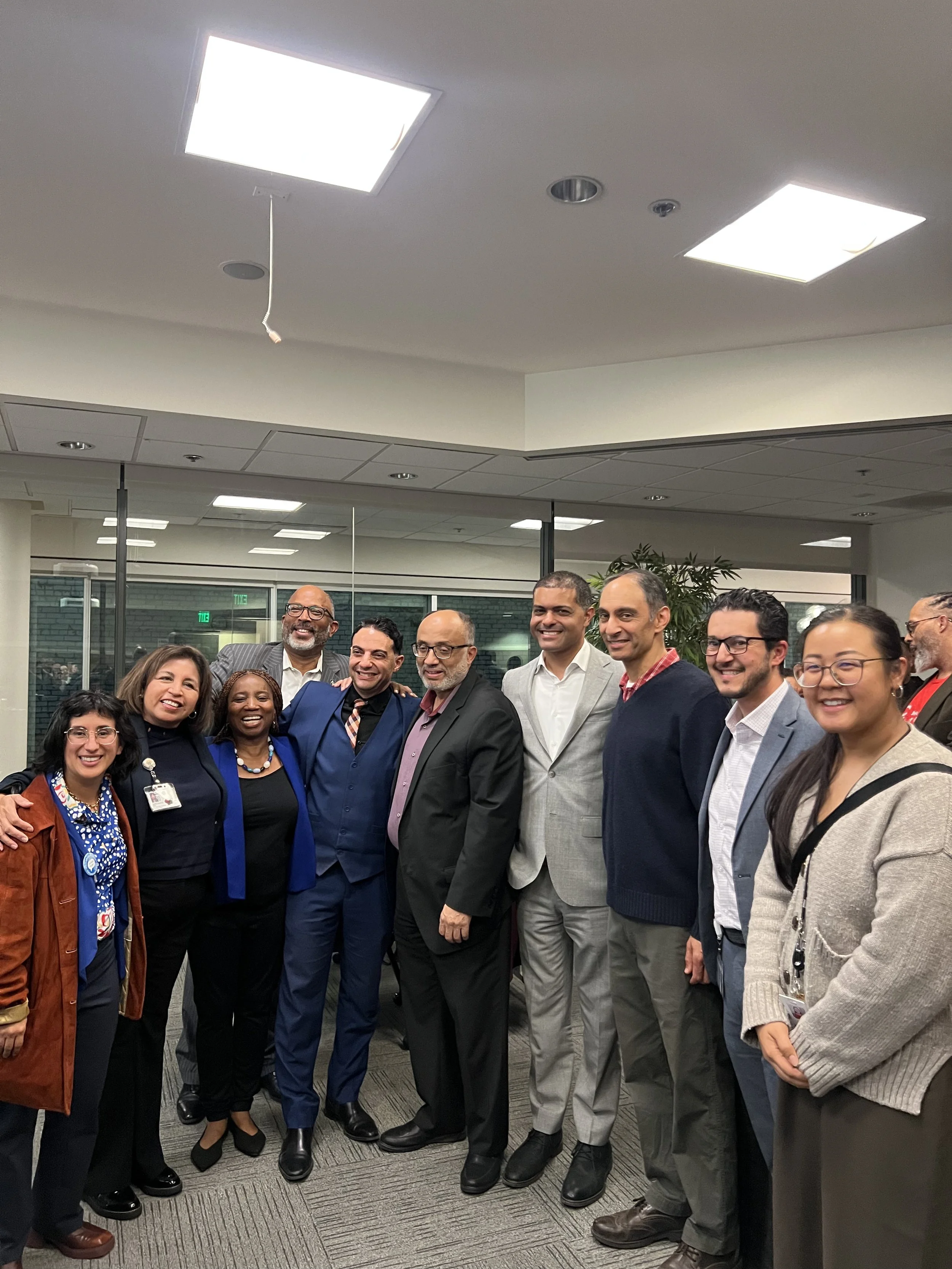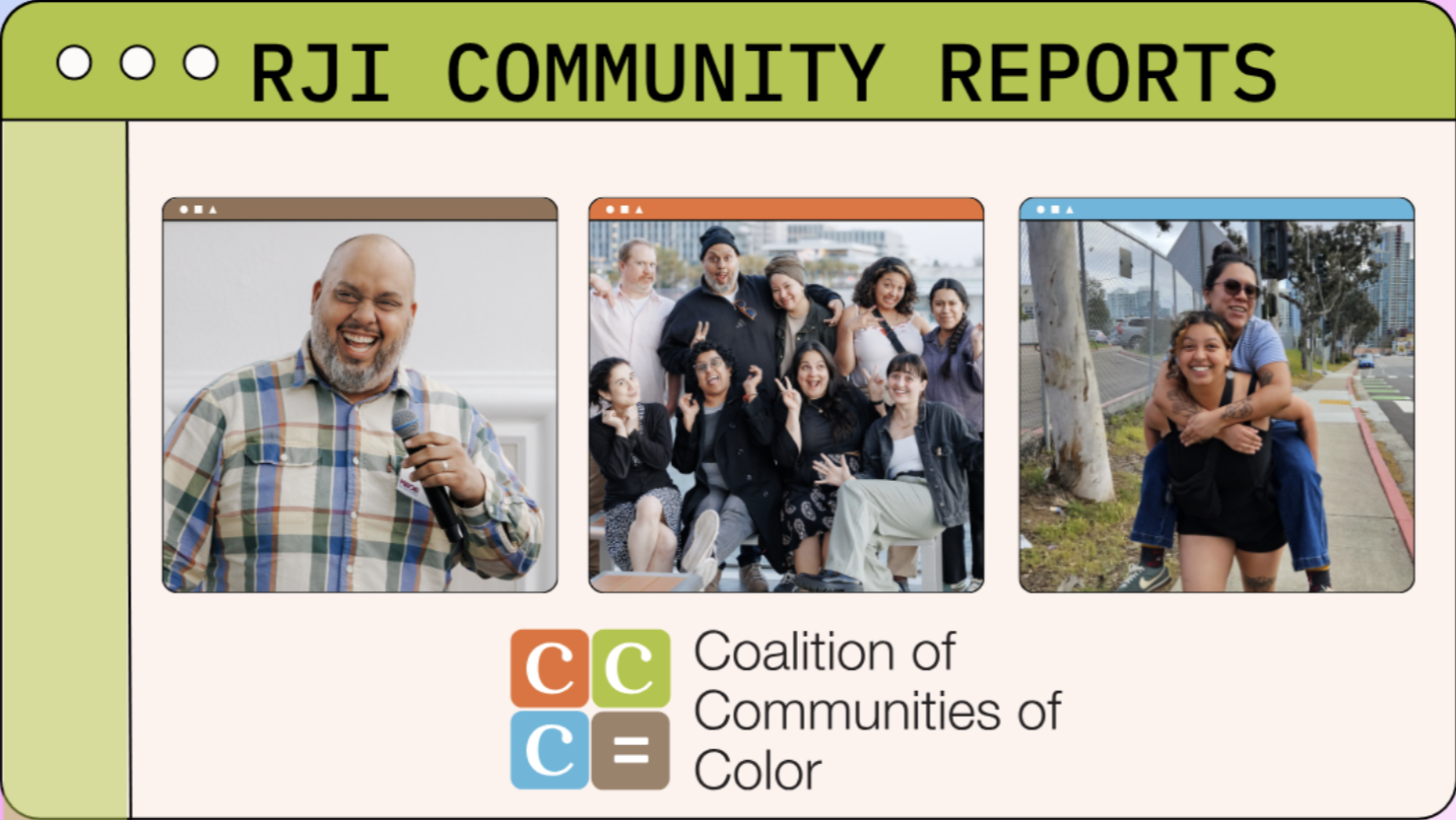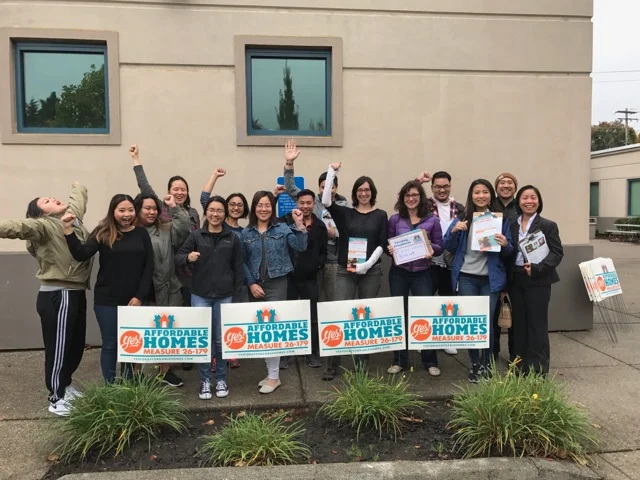The 2016 elections and federal level rollbacks on pro-people of color and pro-climate policies have only heightened the important role of states, cities, organizations, and communities in leading racial, environmental, and climate justice efforts.
Redefine: CCC's Initiative for Environmental and Climate Justice and the Climate Justice Collaborative focus on building leadership and capacity within communities of color and driving racially just environmental and climate solutions at the state and local level. Moreover, the CCC is focused on building strong coalitions and understands the intersections of issues and movements. We have offered just a snapshot of our efforts below. These priorities will make our communities more resilient, address climate change and work to eliminate racial disparities.
Climate and Energy Justice
On June 1st President Trump began the process of pulling out the United States from the Paris Climate Accords, increasing the disastrous effects of pollution and climate change on our communities and slowing the transition to an equitable, clean energy economy. However, on the same day, Multnomah County and the City of Portland became the first communities in the Pacific Northwest to commit to being powered by 100% renewable energy by 2050.
We know communities of color, low-income communities, Native American tribes, and immigrants and refugees are hit first and worst by climate change and the pollution that drives it. We also know we must shift our exploitive economy (profit-driven, growth-dependent, and industrial) to one that is regenerative (sustainable, equitable and just for all its members)—and our communities must be at the center of fighting the bad and building the new. A Just Transition must:
- Shift economic control to communities
- Democratize wealth and the workplace
- Advance ecological restoration
- Relocalize most production and consumption
- Retain and restore cultures and traditions
- Drive racial justice and social equity
Read more about the regenerative economy and Just Transition framework through Movement Generation.That is why Verde, the CCC, and partners like OPAL Environmental Justice Oregon, Community Action Partnership of Oregon (CAPO), and Northwest Sustainable Energy and Economic Development (NWSEED) pushed and secured provisions in the 100% Renewable Resolutions that prioritized:
- Holding low-income ratepayers harmless during this energy transition, which is fundamental to ensuring that access to the financial and environmental benefits of energy efficiency and renewable energy is shared equitably across all economic classes.
- Requiring clear commitments to community-based development and ownership of renewable energy infrastructure, which people of color and low-income people can use to meet their priorities. The City and County are required to support capacity building of organizations to realize these goals.
What does this mean? This means our communities can define our energy and economic future, by envisioning, planning, and developing an economy, energy savings, and benefits that serve local community needs. Much of today’s energy policy rewards those with economic means to maintain a low-carbon lifestyle rather than reducing financial, technology, and ownership barriers for communities already leading and innovating—communities of color, low-income communities, and tribes. Climate justice means not only shifting from exploitive fossil-fuel based sources of energy, but also dismantling corporate control of energy sources and transitioning to democratic, community-based control.
Learn more about energy democracy and community-based energy:
- Toward a Climate Justice Energy Platform: Democratizing Our Energy Future
- Energy Democracy For All: What is Energy Democracy
- NAACP Just Energy Policies Report
A big thank you to Multnomah County (Chair Kafoury, Commissioner Vega Pederson, County Commission, and Office of Sustainability) and the City of Portland (Mayor Wheeler, City Council, and Bureau of Planning and Sustainability) for supporting this vision.
Housing Justice, Rent Stabilization, and Climate Resilience
The CCC released a report “Building Community: A Disparate Impacts Analysis and Cross-Cultural Agenda to Prevent Displacement and Gentrification” written by the CCC and Urban League of Portland and funded by Meyer Memorial Trust. The “Rebuilding Community” brief is based on the experiences of many of Portlanders from communities of color, advocacy organizations and a series of culturally-specific focus groups held over six months. It provides a vivid narrative of the impact of barriers to people finding a stable home. The report recommends policymakers can help slow the displacement of communities of color by passing legislation like HB 2004A, which limits evictions without cause against individuals and families who follow the terms of their leases.
Housing Stability and Anti-Displacement: What does environmental and climate justice have to do with it?
Investments in environmental and climate justice strategies do not work if they do not include investments in housing stability and affordability. Lack of affordable, safe and energy efficient housing leads to heightened displacement, worsening existing environmental injustices such as communities located near high traffic and pollution corridors; increased distances to healthy foods, jobs and community centers; less ability to afford energy or water costs due to increased transportation costs; and less access to public transit and walkable neighborhoods.
Displacement of our communities to the outskirts of cities directly contributes to climate pollution due to increased travel distance, prevents equitable access to new climate resilient infrastructure and environmental benefits, and decreases economic stability. People experiencing homelessness are overexposed to environmental hazards such as pollutants, extreme weather, and incomplete pedestrian infrastructure—clear environmental injustices. Moreover, increasing climate impacts in other parts of the country are making the Portland metro region a more attractive place to live in. Of course, climate change is just one factor among many that influence people to move, but as climate change heats up, many have theorized that migration to the Portland and the Pacific Northwest will accelerate, which will make housing even more expensive.
Combating displacement through strategies like equitable development, affordable housing, local minority contracting and construction, and energy savings is a climate, economic and community resilience strategy. We recognize that climate solutions can stabilize neighborhoods and communities and help alleviate poverty.
For more legislative updates see REDEFINE’s most recent newsletter here.

























